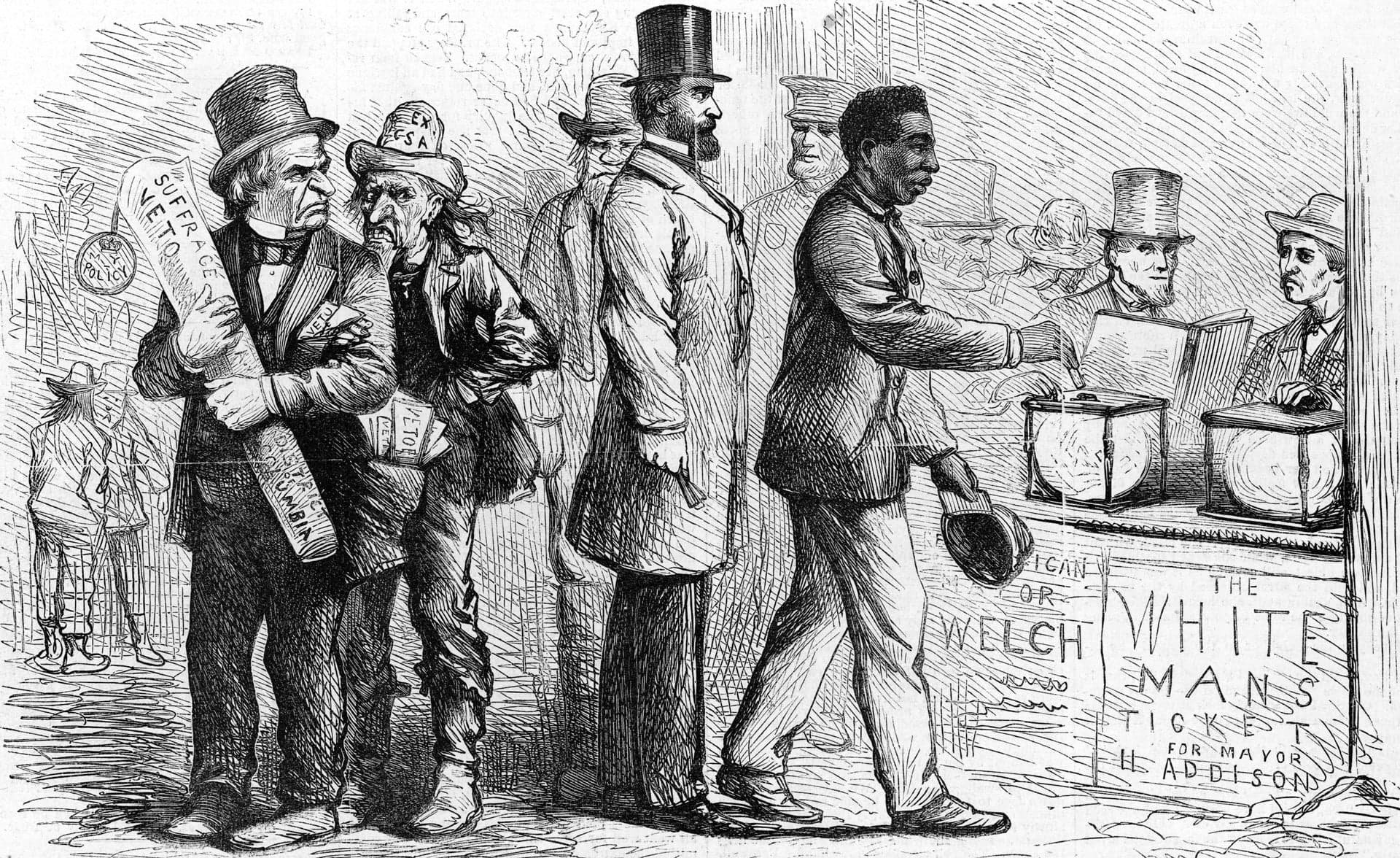Following its ratification by the requisite three-fourths of the states, the 15th Amendment, granting African American men the right to vote, is formally adopted into the U.S. Constitution. Passed by Congress the year before, the amendment reads, “the right of citizens of the United States to vote shall not be denied or abridged by the United States or by any State on account of race, color, or previous condition of servitude.” One day after it was adopted, Thomas Peterson-Mundy of Perth Amboy, New Jersey, became the first African American to vote under the authority of the 15th Amendment.
READ MORE: When Did African Americans Actually Get the Right to Vote?
In 1867, the Republican-dominated Congress passed the First Reconstruction Act, over President Andrew Johnson’s veto, dividing the South into five military districts and outlining how new governments based on universal manhood suffrage were to be established. With the adoption of the 15th Amendment in 1870, a politically mobilized African American community joined with white allies in the Southern states to elect the Republican Party to power, which brought about radical changes across the South. By late 1870, all the former Confederate states had been readmitted to the Union, and most were controlled by the Republican Party, thanks to the support of African American voters.
In the same year, Hiram Rhodes Revels, a Republican from Natchez, Mississippi, became the first African American ever to sit in Congress. Although African American Republicans never obtained political office in proportion to their overwhelming electoral majority, Revels and a dozen other African American men served in Congress during Reconstruction, more than 600 served in state legislatures, and many more held local offices. However, in the late 1870s, the Southern Republican Party vanished with the end of Reconstruction, and Southern state governments effectively nullified the 14th and 15th Amendments, stripping Southern African Americans of the right to vote. It would be nearly a century before the nation would again attempt to establish equal rights for African Americans in the South.
READ MORE: Black History Milestones: Timeline

